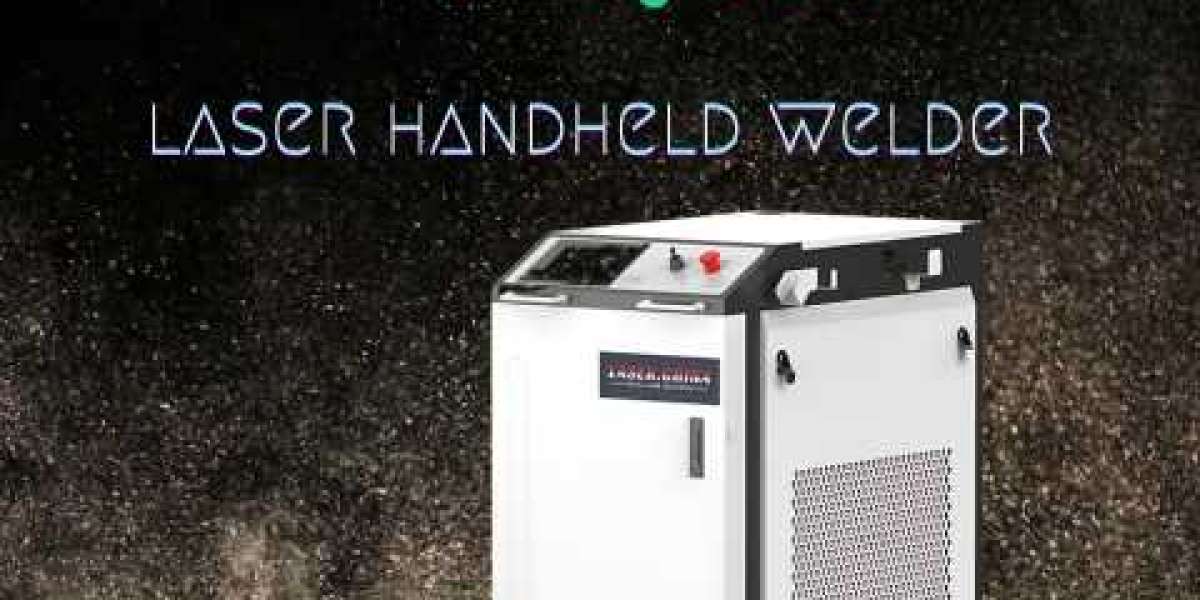In the realm of energy storage solutions, 12V lithium batteries have rapidly become a top choice for a variety of applications. These batteries are known for their high energy density, lightweight nature, and the ability to maintain a stable output, making them ideal for both mobile and stationary uses. They are increasingly popular in RVs, where efficient and reliable power is crucial for operating appliances and electronics on the go. Additionally, their compact design and ease of installation make them suitable for enhancing solar power setups, allowing homeowners to maximize their energy storage capacity. Technological advancements have made these batteries more accessible and practical, offering excellent performance and sustainability.
Solar Power Integration – How Lithium Batteries Enhance Efficiency
Incorporating 12V lithium-batteries into solar power systems significantly improves energy storage and utilization efficiency. These batteries are engineered to handle the variable energy inputs typical of solar power, capturing and storing energy more effectively. They can endure frequent charging and discharging cycles, which align perfectly with the daily cycles of solar energy production and usage.
Another notable advantage is their high energy density, which allows them to store more power in a smaller space. This is particularly beneficial for residential solar setups where space can be a limiting factor. The lightweight nature of lithium batteries also means that installation can be simpler and less labor-intensive than heavier alternatives.
12V lithium-batteries also provide a more stable power output, which is crucial for maintaining the performance of solar systems. This stability ensures that the energy stored can be used efficiently, reducing losses and improving the overall effectiveness of the solar power setup. Additionally, their fast charging capabilities mean they can quickly store energy during peak sunlight hours, ensuring that the maximum amount of solar energy is captured.
By integrating 12V lithium-batteries into solar power systems, users can achieve a more reliable and efficient energy solution, get the most out of their solar panels, and contribute to a sustainable energy future.
Advantages Over Other Battery Types
12V lithium-batteries excel over traditional lead-acid batteries in several key areas. They boast higher efficiency and quicker charging times, allowing users to maximise their energy resources. Their lightweight and compact design makes them easier to install and transport, reducing labour and logistical challenges.
Moreover, 12V lithium-batteries are more environmentally friendly, as they do not contain toxic elements like lead or cadmium. This makes them a safer choice for both the user and the planet. Additionally, they maintain their capacity better over time, providing consistent power output and reliability. Their ability to handle frequent charging and discharging cycles without significant degradation further sets them apart, ensuring long-term performance and durability.
This resilience makes 12V lithium-batteries particularly suitable for applications where constant use and reliability are crucial, such as in renewable energy systems and electric vehicles. As technology advances, we can expect even more improvements in efficiency and longevity, further solidifying their position as a superior choice in the battery market.
Key Benefits of 12 V Lithium Ion Batteries over Traditional Options
One of the standout benefits of 12 v lithium ion batteries is their superior energy efficiency, allowing quicker charging times and better utilisation of stored power. These batteries are also significantly lighter and more compact than traditional lead-acid batteries, simplifying installation and transportation.
Their ability to endure frequent charging and discharging cycles without substantial capacity loss ensures they remain reliable over the long term. Environmentally, 12V lithium-batteries have the advantage of being free from toxic elements like lead or cadmium, making them a safer choice for users and the planet.
Additionally, they maintain a stable output, providing consistent performance crucial in various applications such as RVs and solar power systems. Their robust construction and advanced technology also translate to lower maintenance requirements, further reducing the overall cost of ownership.
This makes them particularly appealing for industries and consumers looking to optimise performance while minimising expenses. As innovation in lithium battery technology continues, we can expect even more improvements in efficiency and lifespan, enhancing their appeal across a broader range of applications.
Battery Longevity – Maximising Performance and Lifespan
To maximise the lifespan and performance of your 12V lithium battery, it is essential to follow some best practices. First, avoid exposing the battery to extreme hot and cold temperatures, as this can significantly impact its lifespan. Optimal temperature ranges for lithium batteries are generally between 32°F and 113°F.
Proper charging practices are also crucial. Avoid overcharging by using a charger specifically designed for lithium batteries, which typically includes built-in mechanisms to prevent overcharging. Similarly, avoid deep discharging, which means not letting the battery's charge drop to extremely low levels before recharging. Many lithium batteries have a built-in Battery Management System (BMS) that helps protect against these issues.
Regular monitoring of the battery's health can help you identify potential issues before they become significant problems. This can be done using various tools and apps that provide real-time data on the battery's state of charge, health, and overall performance.
Maintaining a clean and dry environment around the battery is also beneficial. Dirt and moisture can lead to corrosion and other issues that may degrade the battery's performance. Ensuring the battery terminals are clean and securely connected can also help maintain optimal performance.
Lastly, if the manufacturer recommends, periodic calibration can help ensure that the battery management system accurately reflects the battery's charge status, leading to more reliable performance.
Fast Charging Capabilities – Reducing Downtime for Users
The fast charging capabilities of 12V lithium-batteries stand out as a major benefit, particularly for those who require quick turnaround times. Unlike traditional batteries, which can take hours to recharge, 12V lithium-batteries can achieve a substantial charge in a much shorter period. This efficiency is crucial for users who depend on their power sources for critical operations, such as in RVs, where continuous power is necessary for comfort and functionality.
For mobile applications, the ability to quickly recharge means less time spent tethered to a power outlet and more time enjoying off-grid adventures. In backup power scenarios, rapid charging ensures the battery is ready to provide power whenever needed, reducing the risk of prolonged outages. This is particularly vital for businesses and medical facilities where power reliability is paramount.
Additionally, the technology behind 12V lithium-batteries allows for better heat management during charging, which minimises the risk of overheating and extends the battery’s overall lifespan. Users can also use partial charging capabilities, meaning they don’t need to wait for a complete discharge before recharging. This flexibility makes it easier to maintain a ready-to-use power source.
In summary, the fast charging capabilities of 12V lithium-batteries offer significant advantages, providing users with a reliable, efficient, and quick power solution to keep their devices and systems operational with minimal downtime.
The Role of Lithium Batteries in Sustainability
Lithium batteries support sustainability by providing energy-efficient and environmentally friendly power solutions. Their ability to store energy effectively makes them essential for reducing reliance on fossil fuels.
Reducing Carbon Emissions
One of the primary benefits of lithium batteries is their contribution to lowering carbon emissions. By powering electric vehicles (EVs) and renewable energy systems, lithium batteries help reduce greenhouse gas output compared to traditional fuel-based alternatives.
Enhancing Renewable Energy Storage
Lithium batteries support solar and wind energy by storing excess power generated during peak hours. This ensures continuous energy supply even when sunlight or wind is unavailable, making clean energy more reliable.
Energy Efficiency Longevity
Compared to conventional battery types, lithium batteries last longer and require fewer replacements. Their high energy density allows for more efficient power storage, reducing waste and improving overall energy usage.
Recycling Sustainable Production
Advancements in lithium battery recycling aim to reduce environmental impact. Manufacturers are working on improved recycling methods and sustainable materials to minimise battery waste and reliance on scarce resources.
Applications in Solar Power Systems
In solar power systems, 12V lithium-batteries play a crucial role by providing efficient energy storage, ensuring a reliable power supply even during periods without sunlight. Their ability to endure frequent charging and discharging cycles aligns perfectly with the daily energy patterns of solar setups.
Unlike traditional batteries, these lithium variants can quickly store energy during peak sunlight hours and deliver a stable output when needed, enhancing the overall efficiency of the solar system. Their lightweight and compact design simplifies installation, making them an ideal choice for residential and commercial solar projects where space and weight are considerations.
Additionally, the scalability of 12V lithium-batteries allows users to easily expand their storage capacity as energy needs increase, making them a flexible solution for growing energy demands. Their long lifespan and low maintenance requirements further enhance their suitability for solar power systems, reducing the need for frequent replacements and associated costs. With these batteries, users can maximise their investment in solar technology, ensuring a sustainable and dependable energy source for various applications.
Cost vs. Value – Making a Wise Investment in Energy Storage
Investing in 12V lithium-batteries may involve a higher initial expenditure than traditional battery options. However, the long-term benefits can outweigh these upfront costs. One of the primary advantages is their extended lifespan, which can exceed 10 years with proper care. This durability translates into fewer replacements and lower long-term expenses.
Additionally, their high energy efficiency means you get more usable power per charge, reducing the need for frequent recharging and thus saving electricity costs. The lightweight and compact design also saves installation and transportation costs, making them more convenient and cost-effective for various applications.
Another significant factor is the low maintenance requirement. Traditional batteries often need regular maintenance to perform efficiently, incurring additional costs. In contrast, 12V lithium-batteries require minimal upkeep, reducing ongoing maintenance expenses.
These batteries offer added environmental value. They are free from toxic heavy metals like lead and cadmium, making them a safer and more sustainable option. This environmental benefit can also translate into long-term savings, particularly if regulations on hazardous materials become more stringent.
The scalability of 12V lithium-batteries allows users to easily expand their energy storage as their needs grow, offering a flexible and future-proof solution. These factors make it clear that the long-term value and savings provided by 12V lithium-batteries make them a wise investment in energy storage solutions.
Conclusion
12V lithium batteries provide significant advantages for various applications. Their high energy density allows for more power storage in a compact, lightweight design, making them ideal for both mobile and stationary uses. This means easier installation and transportation, which is particularly beneficial for RVs and solar setups. Additionally, these batteries maintain a stable output and can handle frequent charging and discharging cycles without substantial degradation, ensuring long-term reliability. Environmentally, they are a safer option as they do not contain toxic heavy metals like lead or cadmium, contributing to a more sustainable future. Their fast-charging capabilities reduce downtime, crucial for everyday use and critical backup power needs.
FAQs
How long do 12V lithium-batteries typically last?
With proper care, they can often exceed a lifespan of 10 years, significantly outlasting traditional batteries.
Are 12V lithium-batteries safe for the environment?
They are more environmentally friendly as they don't contain toxic heavy metals like lead or cadmium.
Can 12V lithium-batteries be used in any application that requires a 12V battery?
While they can replace most 12V batteries, checking compatibility with your specific device or system is crucial to ensure optimal performance.
What are the maintenance requirements for 12V lithium-batteries?
They require minimal upkeep compared to traditional batteries. To prevent issues like corrosion, regularly check the battery's health using monitoring tools and keep the environment around it clean and dry.
How do 12V lithium batteries handle frequent charging and discharging cycles?
12V lithium batteries are engineered to endure frequent cycles without significant degradation, ensuring reliable performance.
Related Business Listings |







